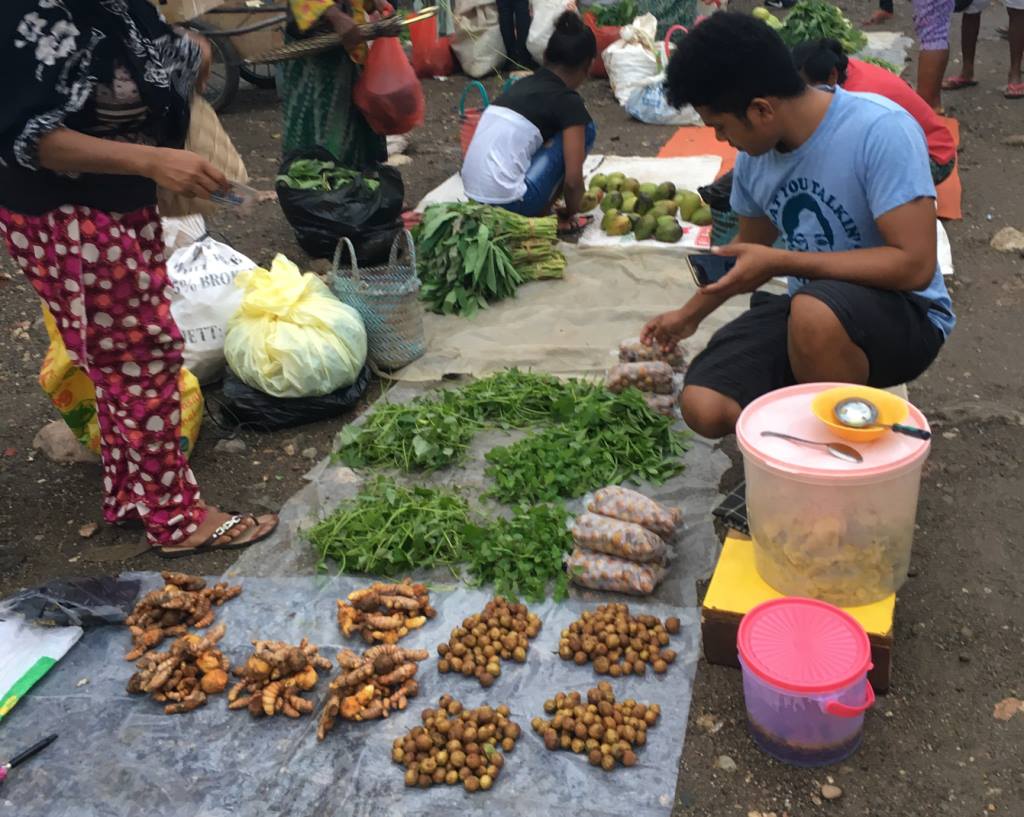
Successful engagement of youth is essential for addressing the complex challenges of malnutrition, food insecurity and rural unemployment. According to Timor-Leste's 2015 Census, 70% of the population is under the age of 25 (youth are defined in Timor-Leste as between 15 and 24 years of age). Although, just over 40% of employed people are engaged in the agriculture sector (2013 Labour Force Survey), only 10% of farmers are under the age of 30 (IADE Survey, 2017). With these two dynamics in mind, the Food and Agriculture Organization of the United Nations commissioned Agora Food Studio, through the EU-FAO FIRST program[1][1], to conduct a study on sustainable livelihood opportunities for rural youth in Timor-Leste. The study, the first in Timor-Leste to look closely at the intersection of youth and agriculture, took place from January to March of 2018.
Key findings confirmed that youth perceive working in agriculture to be hard work for little financial reward, especially in comparison to (potential) employment in Dili or working overseas. Rural female youth face even more barriers to working in market-driven agriculture, including much lower access to education and training and continued expectations of their roles to bear children and conduct housework. There remains little awareness of the potential for market-driven agriculture to provide sustainable rural livelihoods and therefore only very few youth even consider working in the sector by choice.
The study found that there are a few youth entrepreneurs emerging in the agriculture sector, particularly at the production end of the value chains but they tend to focus their energies and investments in sub-sectors with shorter term financial pay-offs such as horticulture, aquaculture and value-added food products. All youth encountered through the study claimed that they could mobilize funds to start small agribusinesses but displayed low awareness of any financial management, business planning and quality control skills. They all expressed a strong desire to better access to information about consumer needs, market pricing and crop scheduling.
The study recommended to all partners involved to align their agriculture and food and nutrition security interventions with Timor-Leste's National Youth Policy (2016) five priority areas, especially "healthy lifestyles" and "employment and employability". In order to promote agriculture as a sustainable livelihood opportunity for rural youth, program managers should focus on mentoring existing youth entrepreneurs, especially in post-production skill areas such as quality control, financial management and business planning. Functioning youth centers and some local NGOs could act as learning and information sharing spaces for complementary group training focused on developing youth’s soft skills and increasing their readiness to work.
Information campaigns and training directed towards youth should take advantage of social media platforms currently accessible by rural youth or their friends.
[1][1] The FIRST program (Food and nutrition security impact, resilience sustainability and transformation) is a tripartite partnership between the Government of Timor-Leste, the FAO and the European Union which aims to strengthen the existing policy framework, governance mechanisms and programming capacity in the field of food and nutrition security and sustainable agriculture.

